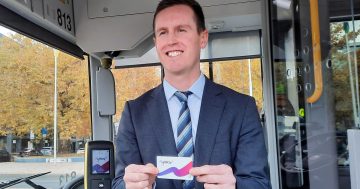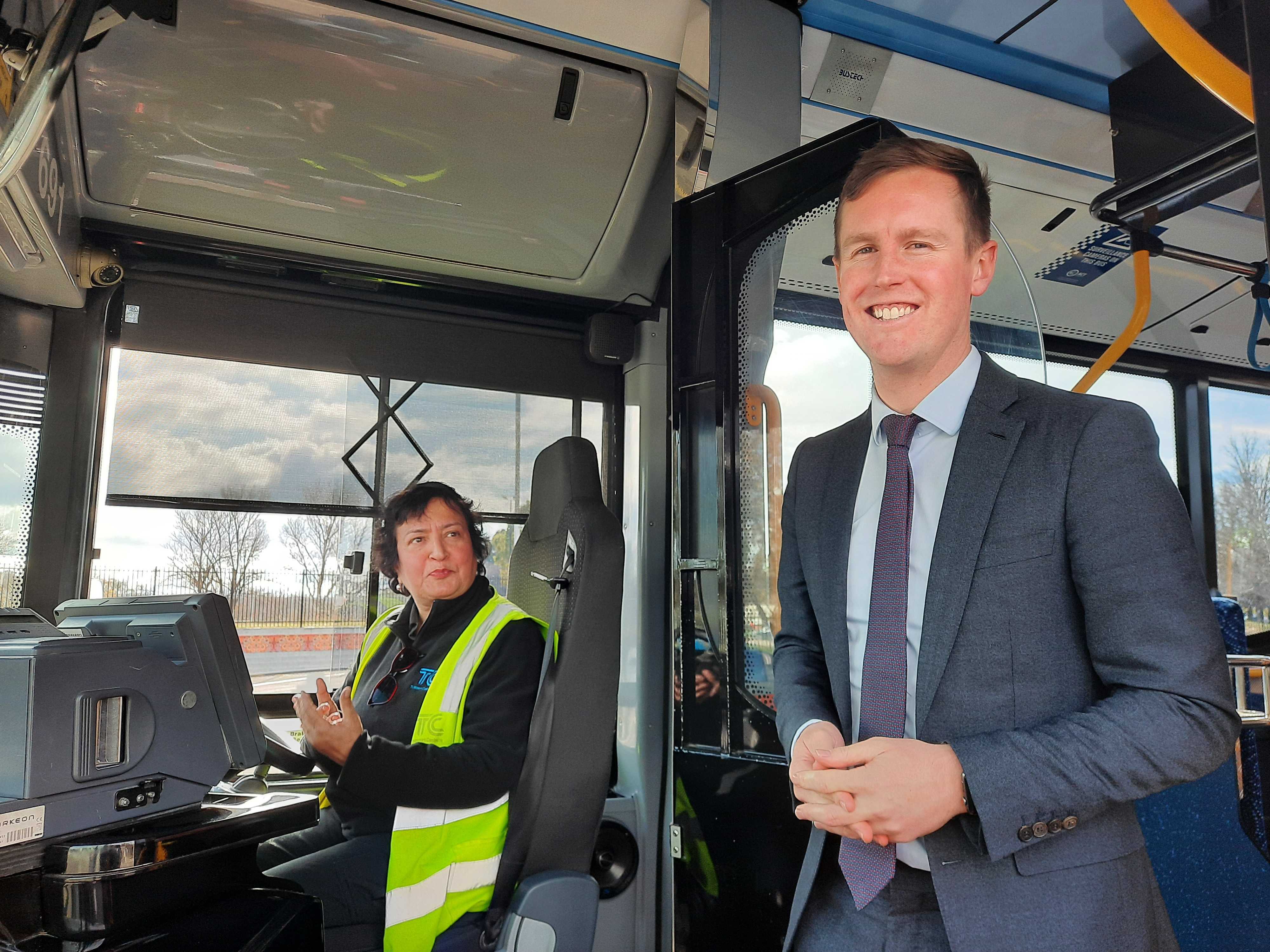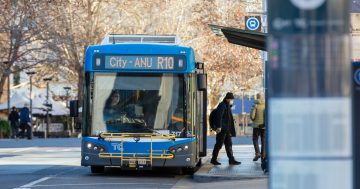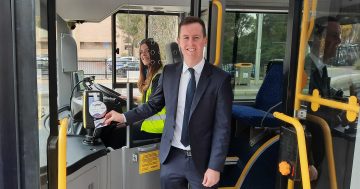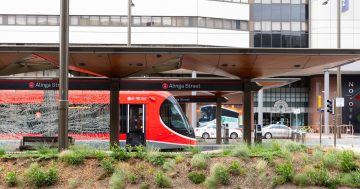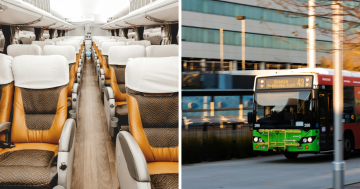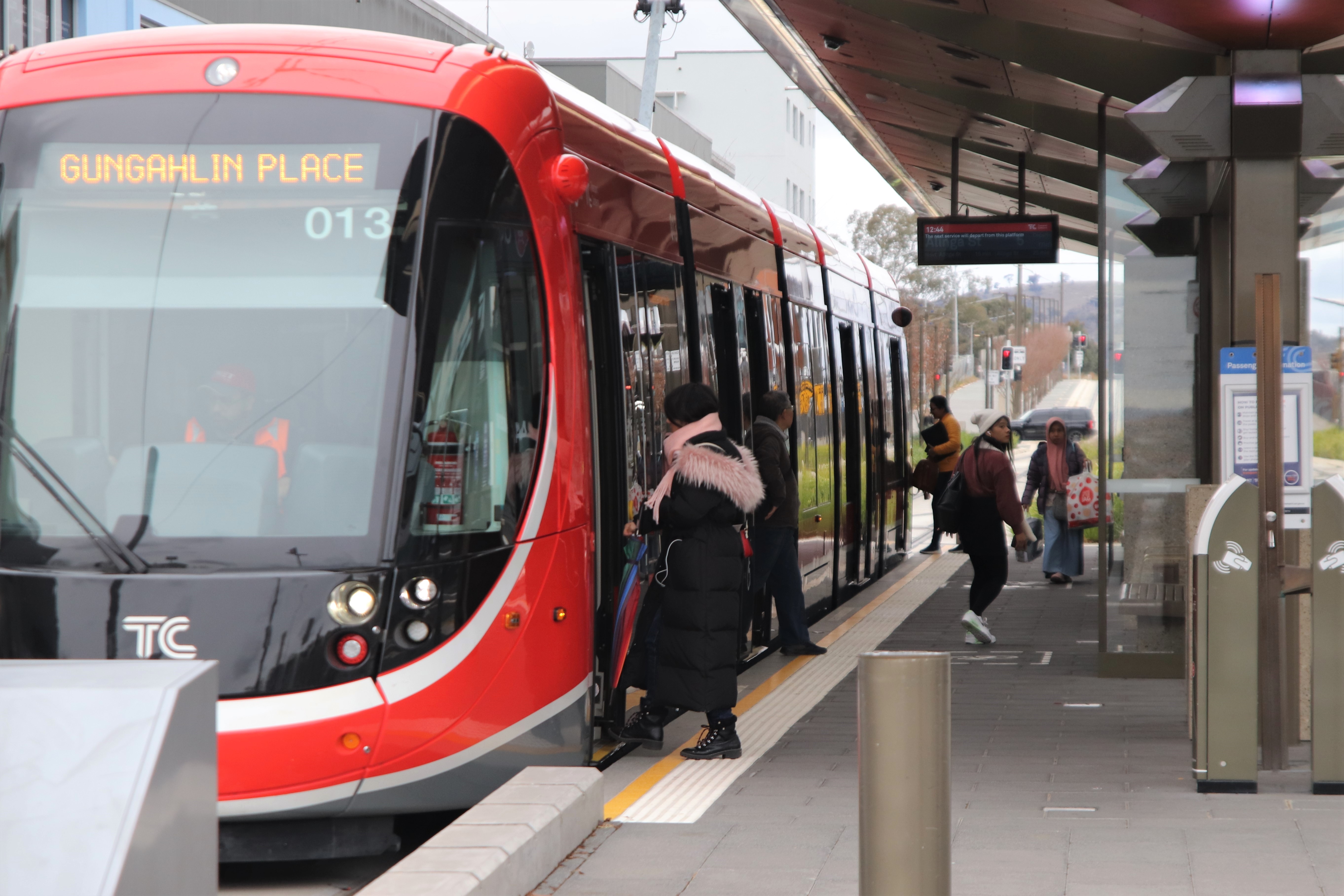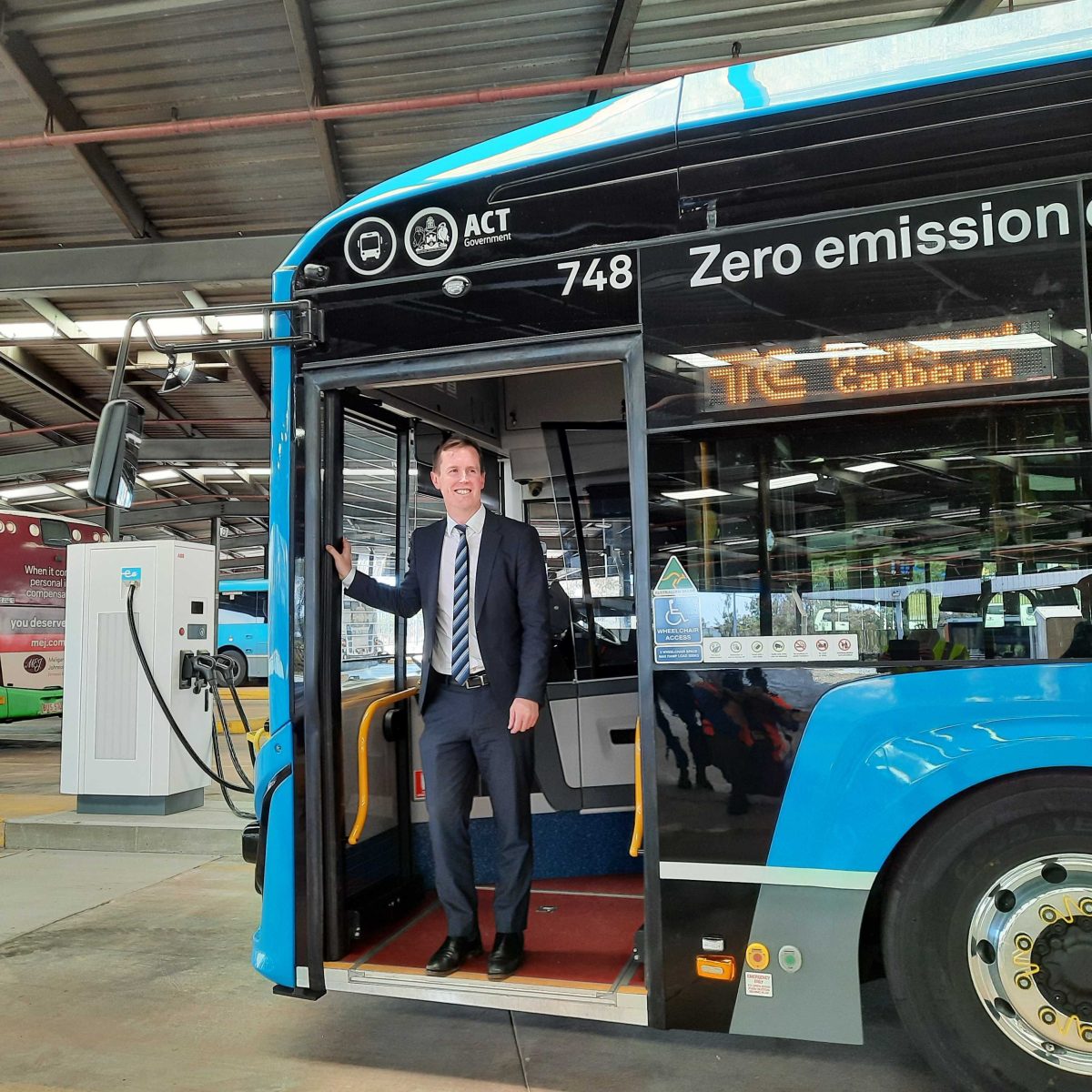
Transport Minister Chris Steel on board the new Custom Denning electric bus, one of four that will join the Transport Canberra fleet. Photos: Ian Bushnell.
The first of four Australian-made electric buses ordered for the Transport Canberra fleet has arrived in the ACT and is about to hit the road.
The new Custom Denning ‘Element’ low-floor battery electric bus (BEB) was on show today at the Belconnen Depot where the four will be based and two chargers have been installed.
Charging infrastructure being installed at the depot will use power from the existing grid.
Built in Sydney, the 45-seat (55 standing) Custom Denning bus takes around five hours to charge and can operate up to 400 kilometres on a full charge.
These four – the other three are due by the end of the year – will take the number of electric buses in the fleet to 16, with the 12 Chinese-made Yutong buses already travelling 400,000 km collectively on Canberra routes.
A further 90 Yutong buses are on order and should be delivered in the next three years.
The electric buses are part of the ACT Government’s plans to transition the fleet to a zero-emissions operation in line with its goal of reaching net zero emissions in the territory by 2045.
Minister for Transport and City Services Chris Steel said the Element buses had been procured on a seven-year lease worth $3.8 million with an option to buy after that.
Mr Steel said running the two electric models would enable Transport Canberra to compare them and understand their operating differences.
He also indicated that more of a procurement focus on Australian-made products and jobs would mean Canberrans would see more of the Custom Denning buses in the future.
“What’s really great about this bus is that its Australian-made and it will enable us to test electric buses technology that is made in Australia by local employees,” Mr Steel said.
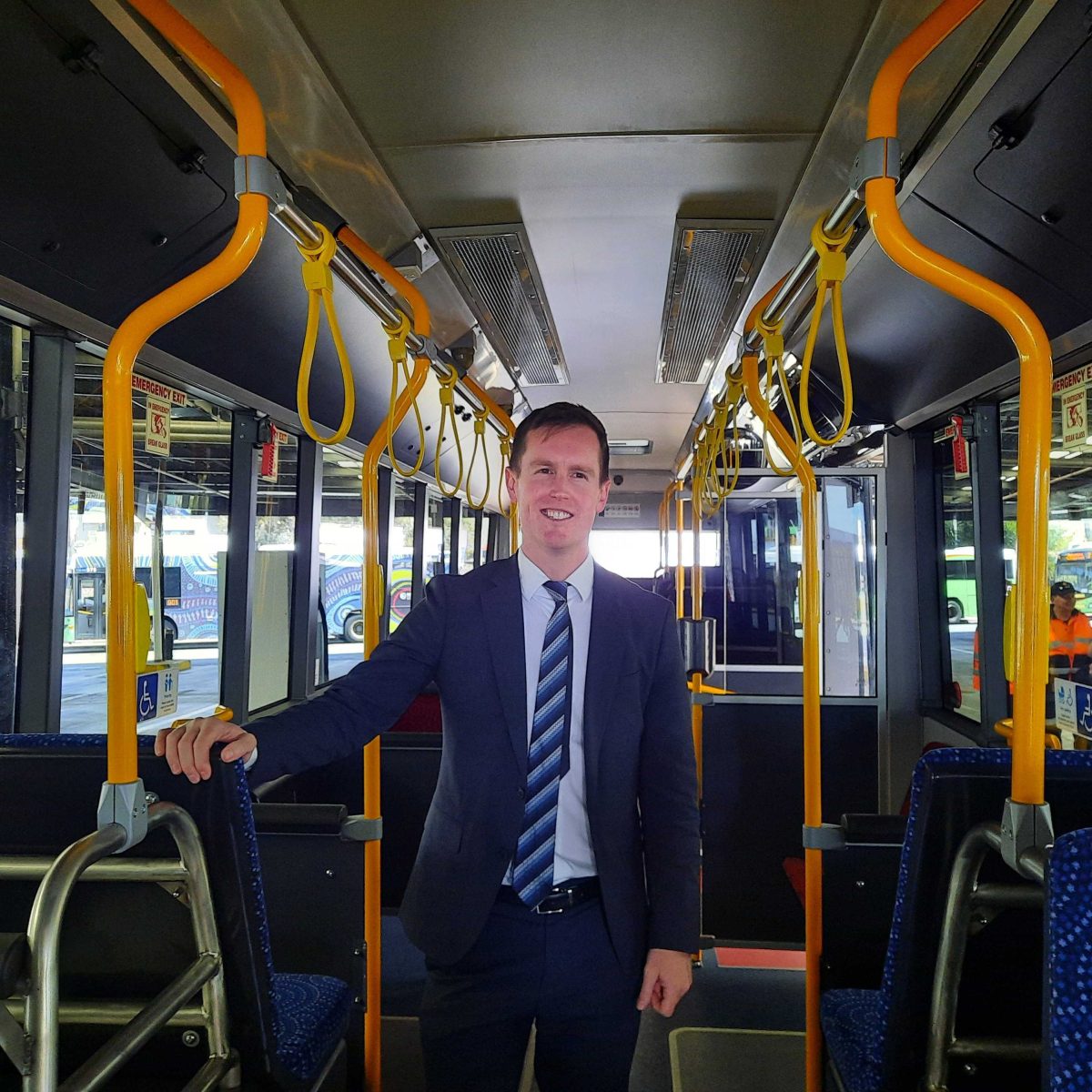
Transport Minister Chris Steel says the Element buses are so quiet they are fitting with sound warnings.
“We’re currently going to be undertaking a review of our local industry participation policy, which has a focus on supporting secure local jobs, and as part of that, we’ll look at the opportunities to support more Australian-made jobs.
“We don’t make buses in the ACT, but we’re certainly interested in what opportunities there are to support regional local secure jobs, and as part of that review, we’ll be considering how we can support more Australian-made jobs through transport procurements.”
Mr Steel said the Element buses would provide clean, quiet and comfortable services.
“These buses are so quiet that they are fitted with sound warnings when the bus starts to reduce speeds below 20 km/h or starts to increase speeds up to 23 km/h,” he said.
Mr Steel said the ACT’s electric bus transition was leading the nation.
“According to the Australia Institute, the ACT is leading the country by the number of electric buses delivered per capita, and these new buses will further increase our growing zero-emission fleet,” he said.
“The ACT is also a leader in delivering nation-leading electric vehicle training and we are supporting our heavy vehicle workforce to skill up for the transition to this new technology.”
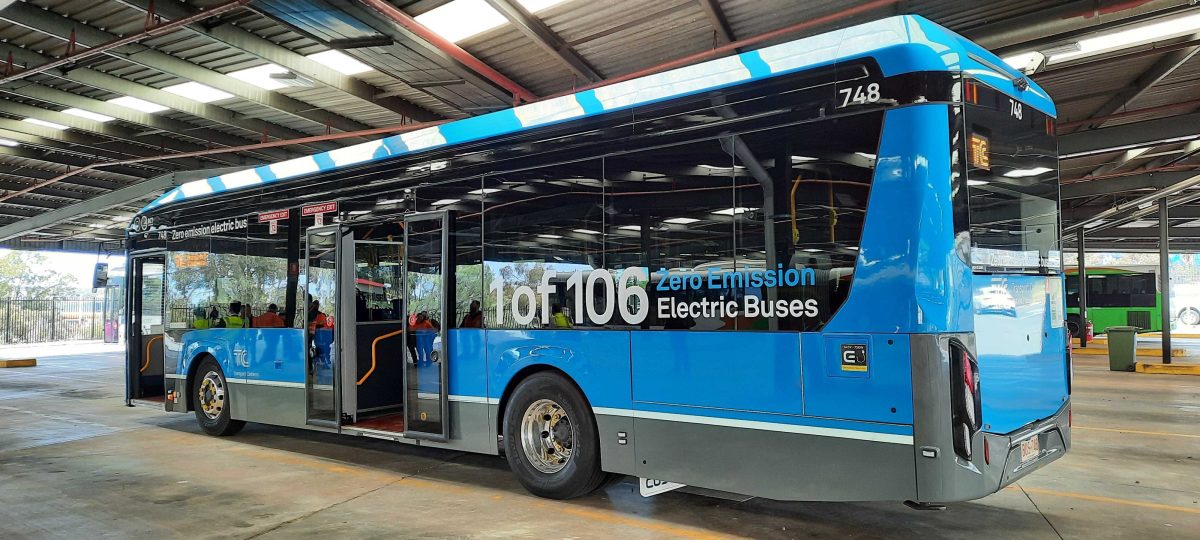
Australian-made: Changing procurement policies are likely to mean more of these will be on Canberra roads in the future.
Mr Steel said the new electric buses would help replace the older diesel Renault orange buses, that also did not comply with Disability Discrimination Act.
But delays in leasing other diesel replacements that were accessible meant it would be early 2024 before all of these older buses were finally phased out.
Mr Steel said work was continuing to build the new Woden depot and retrofit the Tuggeranong depot, which all up will have the electrical capacity to charge up to 300 electric buses.
He said the Woden depot would be completed by the end of 2024.
National Relationship Manager at Custom Denning, Mick Neskes said his company’s buses had a 25-year-plus lifecycle.
“We look forward to a long-term partnership with Transport Canberra and the ACT Government,” he said.
Mr Neskes said Custom Denning was Australian-owned and Australian-made certified, with the Element EV Bus designed, engineered and manufactured in Australia.
It was creating over 200 jobs for a sustainable transportation future and rebuilding Australia’s sovereign automotive manufacturing capability.
“Custom Denning is both honoured and excited to be collaborating with Transport Canberra and the ACT Government in the electrification of the ACT bus fleet and the transition to a ‘net-zero’ future,” he said.
Original Article published by Ian Bushnell on Riotact.




